Catalan autonomy in fix
Spanish prime minister and the deputy prime minister have said that the government is prepared to apply Article 155 of the Constitution and temporarily suspend the autonomy of the Catalan region in the north east of the country.
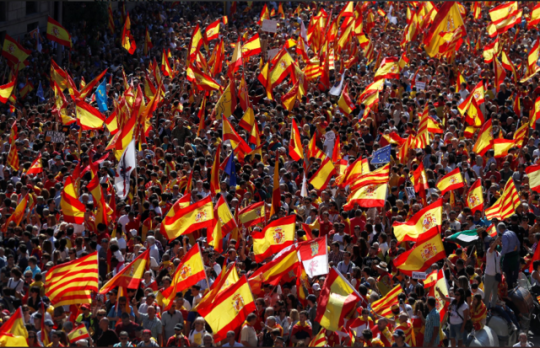
Prime Minister Mariano Rajoy’s government has threatened to apply the measure unless Catalan leader Carles Puigdemont clarifies by 10 a.m. (0800 GMT) on Thursday whether or not he declared the independence of the region on Oct. 10 and to retract that declaration if that is indeed the case.
A first deadline passed on Monday with Puigdemont sending a letter to Rajoy asking for dialogue, but without clarifying the situation. Catalan government spokesman Jordi Turull said on Tuesday that Puigdemont would “not alter” his current position but would again offer a dialogue to Rajoy on Thursday.
Speaking in the Control Session of the Spanish Congress on Wednesday morning, Rajoy insisted that was not enough. “Tomorrow ends the time required for Puigdemont. He has the opportunity to make clear whether or not he declared independence,” Rajoy said.
Rajoy then said if a reply was not forthcoming, his government had “the obligation to defend the rights of all Spanish people.”
Deputy Prime Minister Soraya Saenz de Santamaria said that unless Puigdemont attended to the question, “it will mean Article 155 is applied … We will always apply the Spanish Constitution and applying Article 155 is applying the Constitution,” she added.
The Catalan region held an independence referendum on Oct. 1. The referendum was ruled illegal by the Spanish Constitutional Court on Tuesday and described as “one of the biggest affronts to the Spanish Constitution from a regional parliament.”
China:19th CPC National Congress
China, 19th congress Wednesday to elect new leadership for the party and the nation.
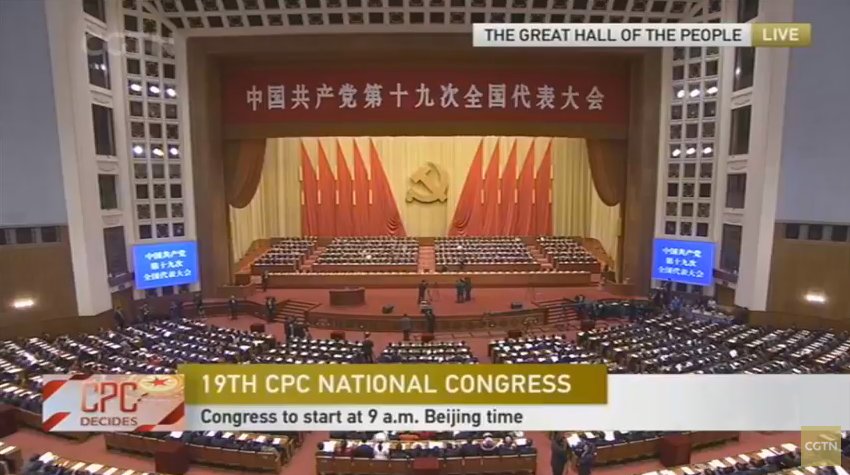
Socialism with Chinese characteristics has entered a new era.
The CPC has given shape to the Thought on Socialism with Chinese Characteristics for a New Era, a long-term guide to action that the Party must adhere to and develop.
The Thought builds on and further enriches Marxism-Leninism, Mao Zedong Thought, Deng Xiaoping Theory, the Theory of Three Represents, and the Scientific Outlook on Development. It represents the latest achievement in adapting Marxism to the Chinese context.
CPC has drawn up a two-stage development plan for the period from 2020 to the middle of the 21st century to develop China into a “great modern socialist country.”
In the first stage from 2020 to 2035, the CPC will build on the foundation created by the moderately prosperous society with a further 15 years of hard work to see that socialist modernization is basically realized.
In the second stage from 2035 to the middle of the 21st century, the CPC will, building on having basically achieved modernization, work hard for a further 15 years and develop China into a great modern socialist country that is prosperous, strong, democratic, culturally advanced, harmonious, and beautiful.
The principal contradiction facing Chinese society has evolved to be that between unbalanced and inadequate development and the people’s ever-growing needs for a better life.
Now the needs to be met for the people to live a better life are increasingly broad. Not only have their material and cultural needs grown, their demands for democracy, rule of law, fairness and justice, security, and a better environment are increasing.
CPC has drawn up a two-stage development plan for the period from 2020 to the middle of the 21st century to develop China into a “great modern socialist country.”
In the first stage from 2020 to 2035, the CPC will build on the foundation created by the moderately prosperous society with a further 15 years of hard work to see that socialist modernization is basically realized.
In the second stage from 2035 to the middle of the 21st century, the CPC will, building on having basically achieved modernization, work hard for a further 15 years and develop China into a great modern socialist country that is prosperous, strong, democratic, culturally advanced, harmonious, and beautiful.
The principal contradiction facing Chinese society has evolved to be that between unbalanced and inadequate development and the people’s ever-growing needs for a better life.
Now the needs to be met for the people to live a better life are increasingly broad. Not only have their material and cultural needs grown, their demands for democracy, rule of law, fairness and justice, security, and a better environment are increasing.
China will not close its door to the world; it will only become more and more open.
China will implement the system of pre-establishment national treatment plus a negative list across the board.
China will significantly ease market access and protect the legitimate rights and interests of foreign investors.
In a speech lasting nearly three and half hours at the opening ceremony held at the Great Hall of the People, Xi said China will become a country that “leads the world in terms of the composite national strength and international influence.” He appeared to be cementing the foundation of his administration for a second term by laying out a medium- to long-term vision.
Xi said “historic shifts” have taken place in the positions of the party and the country over the past five years. He cited stronger national defense as a result of military reforms, stronger party discipline thanks to a crackdown on corruption, and economic reforms, as major accomplishments. He said his administration has “actively promoted the construction of man-made islands in the South China Sea.”
Warsaw withdraws IMF’s credit line FCL
Warsaw will withdraw from the International Monetary Fund’s precautionary Flexible Credit Line (FCL) worth billions of dollars, according to the country’s finance ministry.
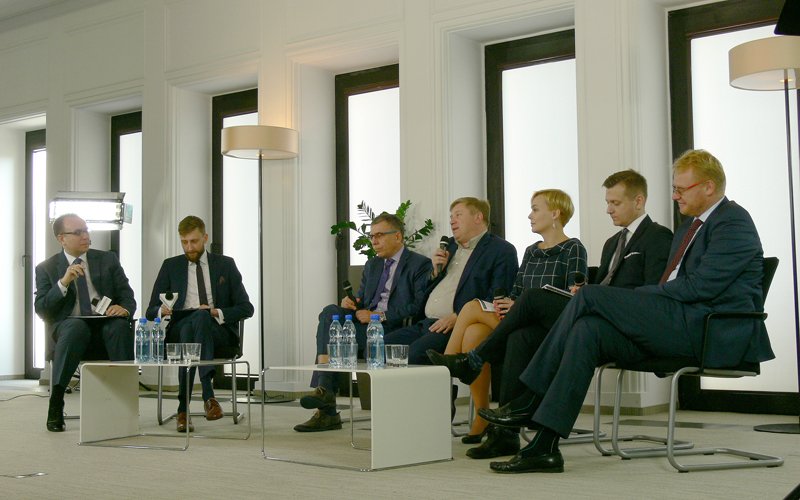
“We are resigning from a $9.2 billion credit line from the IMF. The Polish economy is in such a good situation that we can do it,” the ministry quoted Finance Minister Mateusz Morawiecki on Twitter.
The country’s budget posted a record surplus of $1.36 billion for the period from January to August as a result of a steep rise in revenue from value-added tax. Economic growth was almost four percent.
“I have taken the decision to quit the FCL after an analysis of tax data, macroeconomic parameters, assessment of our budget stability and currency reserves,” Morawiecki was cited as saying.In January, the Executive Board of the IMF approved a two-year arrangement for Poland worth about €8.2 billion at that time.
The fund said the credit line would “provide valuable insurance against external shocks.”
“A possible growth slowdown and banking sector stress in the euro area could have significant spillovers via trade, financial, and confidence channels,” said the IMF
Translate from Polish
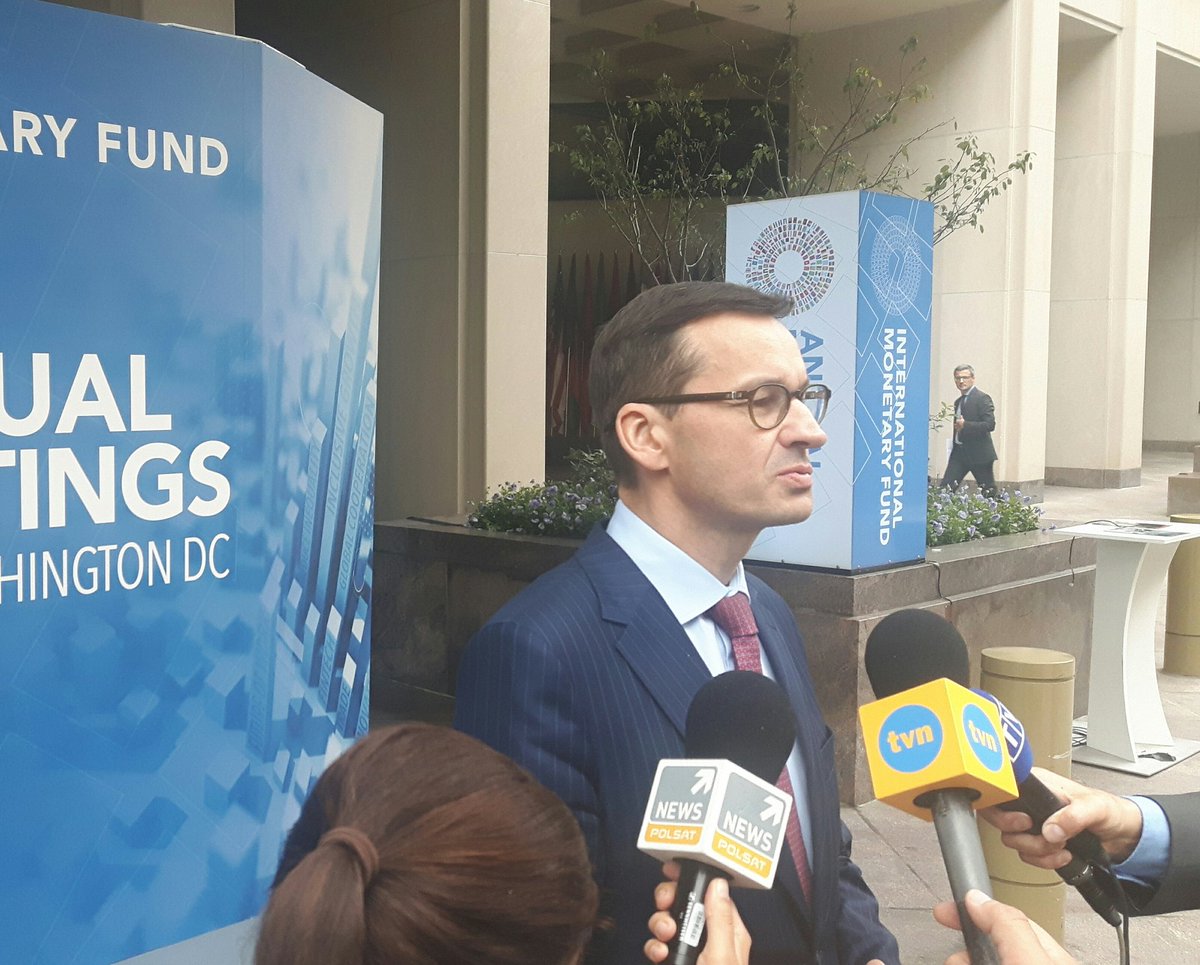
Norway’s Saga Energy 2.5 bn-euro deal with Iran’s Amin Energy Developers
Norwegian solar company Saga Energy signed a deal to invest 2.5 billion euros in the country over the next five years with Iran Amin Energy Developers.
Gaute Steinkopf ने रीट्वीट किया
 Saga Energy just signed contract worth €2.5 billion with
Saga Energy just signed contract worth €2.5 billion with  Amin to build 2GW of solar power in
Amin to build 2GW of solar power in 
“Norway is fully committed to the JCPOA (nuclear deal) and this is proof that we have taken the opening very seriously, and we will see more investment very soon,” Norwegian ambassador Lars Nordrum told AFP.
He was hosting the signing at his residence in Tehran between Norway´s Saga Energy, which will work with Iran´s Amin Energy Developers to install two gigawatts of solar panels in multiple sites around the central desert region.
It comes just days after Trump gave a bellicose speech, imposing further sanctions on Iran and calling for European allies to curb their financial dealings with the country.
The new solar project is being financed by a consortium of European private and state investors, and backed by a sovereign guarantee from the government of Iran.
“We hope to build a factory in Iran to build the panels so that we are also generating jobs,” said Saga´s development manager Gaute Steinkopf at the signing.
“I´d like to thank Norway, which has always been one of the best friends to Iran, for this exciting opportunity,” said Saeid Zakeri, head of international affairs for Amin.
Media agencies
Portugal Int-Min:Constanca Urbano de Sousa resigns
Portugal’s Interior Minister Constanca Urbano de Sousa resigns after fires killed over a hundred people, government says .dailysabah reports.
Portugal’s Interior Minister Constanca Urbano de Sousa resigned from her post after fires killed more than a hundred people in the country’s two worst disasters of recent times, the government said on Wednesday.
The minister said in her resignation letter that after the fires of recent days “I considered that I didn’t have the political and personal conditions to continue in my post.”
Overnight rain and calmer winds have helped firefighters tame a spate of deadly wildfires that broke out over the weekend, devouring homes and killing 41 people in Portugal and another four in northern Spain.
Portugal’s civil protection agency said Tuesday that the 15 biggest fires, which had raged through the center and the north of the country, had been brought under control, but that the death toll had risen.
“We’ve gone from 37 dead to 41,” civil protection agency spokeswoman Patricia Gaspar told AFP.
As the country began three days of mourning for the victims, the agency said 71 people had been injured in the fires, 16 of them seriously. And one person was still missing.
More
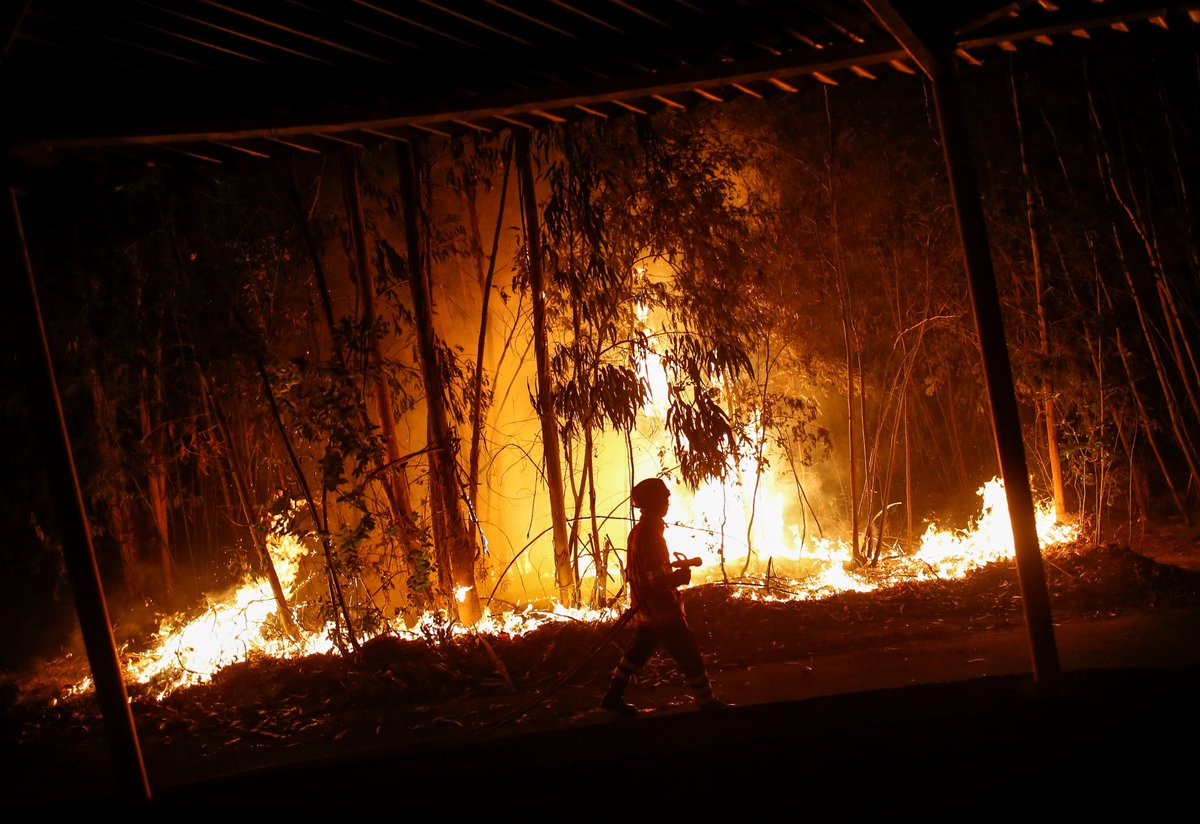
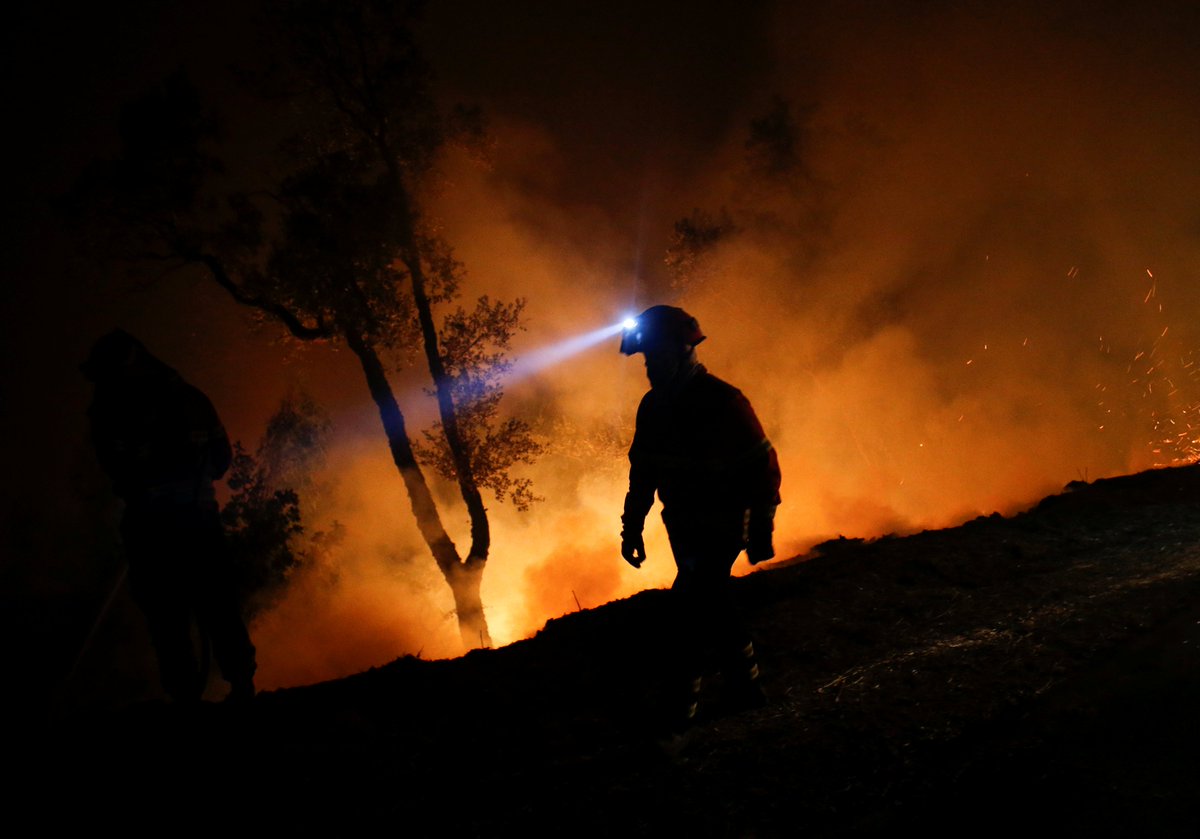

Why China blinked in Doklam standoff
Vinod Saighal | October 18, 2017 3:58 am
What really compelled China to de-escalate in Doklam? First, let us examine the reasons that have been cited in the public domain since the pull-back some weeks ago. After weeks of raising the decibel level the government in Beijing realised that building the road up to the Jampheri Ridge was considered an existential threat by India due to its proximity to the Siliguri corridor and hence India was unlikely to budge; the coming 19th CPC meeting in November 2017 later on in the year and the BRICS meeting at Xiamen.
In the last case it is possible that Putin advised his counterpart that without the participation of the Indian Prime Minister the summit would not measure up to expectation, considerably embarrassing the host country. Since Russia had maintained studied silence throughout the Doklam confrontation, the Russian President’s advice would have been taken in good faith. Had BRICS become a damp squib it would have hurt the Chinese President’s image.
A few other allied reasons had also been discussed threadbare in the print and electronic media. Going beyond the confrontation and the peaceful pullback and, with the passage of time, it becomes possible to deduce the deeper reasons for the Chinese backing down, which in the public perception amounted to loss of face.
The more cogent reasons are briefly discussed in the ensuing paragraphs. More than 70 days had already elapsed since the start of the confrontation. There were no signs of India backing down. Overblown rhetoric followed by threats in case India did not pull back had reached such a crescendo that had the confrontation continued much longer the agitated Chinese public would have mounted intense pressure for action that the government would have found it difficult to resist because in confrontations with other countries never had the Chinese gone so far as to tell its adversary that the latter would be taught a lesson it would not forget.
For the countries of the region watching the situation apprehensively China would have appeared to be a paper tiger. On the other hand the masterly way in which India handled the situation by not matching the Chinese rhetoric gave the impression of quiet confidence that would normally result from a position of strength.
The perception of ‘position of strength’, according to informed sources reporting from Beijing led to re-appraisal within the PLA, CMC as well as the top government echelons. The de novo re-assessment led to considerable doubt and misgivings about the outcome in case China went on to physically evict the Indian troops from their positions. It was realised that without military action the Indian side was not going to budge.
Over the years the Chinese government had come to believe, as had the Indian defence establishment, that military asymmetry with China was too formidable for India to risk military confrontation. The asymmetry since China’s accelerated growth had already been high enough to cause concern. Added to it was the fact that with much higher GDP and military budget the asymmetry would keep growing. The perception was shared by countries of ASEAN and East Asia, even beyond.
This was generally the larger picture prior to the confrontation. It led to the belief in corridors of Beijing that beyond a point, with the nature of threats that amounted to an ultimatum, India had no choice but to withdraw from the Doklam Plateau. The deeper analysis mentioned in the previous paragraph when reduced from the macro-perception to the situation on the border in the face of India’s intransigence showed up the chinks in the Chinese armour that could have resulted in a debacle for the Chinese forces. An elaboration follows:
· The undeniable macro-level asymmetry simply would not work out on any border conflagration with India. China’s overall military strength was that of a growing superpower attempting to match the US military power, if not globally, certainly in the South China Sea, East Asia and in the Pacific. Comparatively, over the years India had quietly built up its strength on its vulnerable border to a level that it felt confident of being able to take on anything that the Chinese would field against them. Several mountain divisions had been raised to reinforce the Arunachal Pradesh border that China had begun to claim since 2005, never before that. Simultaneously a mountain strike corps had commenced raising that although not fully operational for another two years or so had the potential for a limited repost of a type that India never had before. In sum India would have successfully blunted any offensive.
Coming down to the level of the actual fighting most of the factors operative on the ground favoured India. Firstly, in the mountains missiles and other offensive weapons of the type were insufficient to dislodge the Indian troops. Commanders who have operated on those heights know that mountains eat up men. The only way to dislodge the opponent is to have much larger force for dislodging men in strong defensive positions with well-coordinated fire. The Indian side was sure that in hand-to-hand fighting at those altitudes the Indian soldier would be more than a match for the opponent. There are several reasons for such confidence.
The Chinese have not fought any major land war for 38 years. On the Indian side there have been confrontations on the borders with its Western adversary very frequently, sometimes on a daily basis. Besides the Indian soldiers had proved their mettle against heavy odds in the Kargil War where the advantage lay with the opponent.
Another important factor that is overlooked is morale and motivation. For the Indian soldier these are very high because they are fighting for their motherland. Not so the Chinese soldier. The Chinese border with India came into being after the occupation of Tibet a bare 70 years ago. After another century if Tibet were to remain under occupation the feeling may become different. Currently for the Chinese soldier Tibet’s border with India is not motherland. The motivational difference always matters in close fighting.
Coming back the to the individual Chinese soldier located thousands of miles from his home there is further loss of motivation due to the one-child policy that has been in vogue for several decades. Being a single child fighting well away from home and worrying about his aged parents the motivation can never match the adversary confronting him with determination.
To sum it up the situation appears to have ended by considerably discomfiting the Chinese leadership with the attendant loss of face within China and beyond its borders in neighbouring countries. It resulted from a series of miscalculations that need not be gone into in depth in the current paper. Briefly, the Chinese had not anticipated the Indian reaction on Bhutanese territory and the latter’s call to India. Over the decades the Chinese leadership had become accustomed to the fact that when pushed very hard the Indian leadership would step back.
It had happened so often in recent years that the leaders in Beijing did not give it a second thought. Had they pondered a while before aggravating the crisis – by raising the decibel level that made it difficult for them to de-escalate – they would have realized that India’s Prime Minister Narendra Modi was cast in a different mould.
A last thought in this episode that must have crossed some minds at the highest level in Beijing would have been India’s military position in Sikkim (this writer had briefly commanded the East Sikkim watershed in 1991), which overlooks the Doklam Plateau. It is so formidable that any conventional military misadventure instead of resulting in 1962 could well have resulted in another 1979. That conceivably could have been the end of the Chinese leader’s dream of a long tenure at the apex.
(The writer, a retired Major-General of the Indian Army is the author of Third Millennium Equipoise.)
Director General of MI5 Andrew Parker
Director General of MI5 Andrew Parker delivers a speech in central London, on the security threat facing Britain October 17, 2017/REUTERS
Britain faces the most acute threat ever from militants seeking to inflict mass attacks, often with spontaneous plots that take just days to bring to execution, the head of the MI5 domestic intelligence agency said on Tuesday.
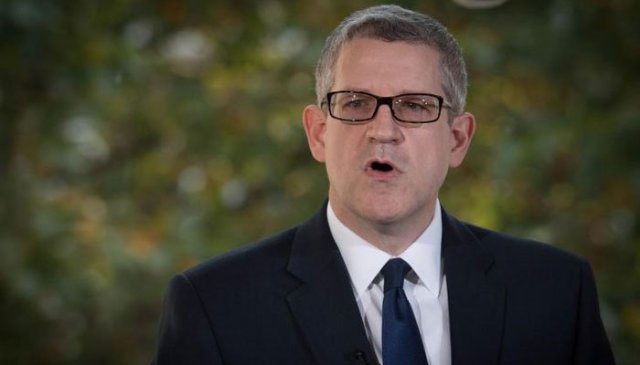
After four militant attacks this year that killed 36 people in Britain – the deadliest spate since the London “7/7” bombings of July 2005, MI5 chief Andrew Parker said the threat was at the highest tempo he had seen in 34 years of espionage.
“The threat is more diverse than I have ever known: plots developed here in the UK, but plots directed from overseas as well, plots online, complex scheming and also crude stabbings, lengthy planning but also spontaneous attacks,” said Parker.
“Attacks can sometimes accelerate from inception, through planning, to action in just a handful of days,” he said in a speech in central London. The director general of MI5 rarely gives public speeches. The last was in 2015.
Daesh militants in Syria and Iraq have been in retreat for two years: They lost their de facto capital in Syria, Raqqa, on Tuesday and have been forced back into an ever-diminishing foothold along the Euphrates river valley.
But as their territory, wealth and swagger decline, the militants have intensified online propaganda which has helped radicalise and inspire extremists to attack civilians across Europe, the Middle East and Africa.
Parker said there had not yet been a large influx of British militants returning home from Syria and Iraq.
‘More threat, faster’
Britain has foiled 20 plots in the past four years, with seven attacks prevented in the past seven months, Parker said. He said there were 500 live operations involving 3,000 people involved in militant activity.
MI5, established in 1909 to counter German espionage ahead of World War One, is tasked with protecting British national security and so takes the lead, along with the police, in countering militant attacks.
But after a suicide bomber killed 22 people at a pop concert by US singer Ariana Grande in Manchester, MI5 began a review of how it handled intelligence on the bomber, Salman Abedi, who was known to the intelligence agencies.
Abedi was not among the 3,000 people currently under active investigation by MI5, although he was one of around 20,000 people known to have some connection to extremism.
“When an attack happens, we are determined, using the harsh light of hindsight, to squeeze out every last drop of learning,” Parker said. “We are constantly evolving to stay ahead.”
MI5, which employs around 4,000 people, says it does not have the resources to monitor every suspicious person. It works alongside the Secret Intelligence Service, or MI6, which operates abroad, and GCHQ, Britain’s eavesdropping agency.
‘Not King Canute’
Britain has repeatedly demanded that Silicon Valley companies do more to suppress extremist content and allow access to online communication.
After British militants rammed a van into pedestrians on London Bridge and went on the rampage through packed bars, stabbing revellers in June, Prime Minister Theresa May said Britain must be tougher on stamping out militancy and proposed regulating cyberspace.
Parker said militants’ abuse of the internet could slow down the rapid pace of the hunt for attackers.
“This pace together with the way in which extremists can exploit safe spaces online can make threats harder to detect and give us a smaller window to intervene.”
Britain’s interior minister, Amber Rudd, said earlier this month that WhatsApp’s end-to-end encryption communication services allowed paedophiles and organised crime groups to operate beyond the reach of the law.
But Parker refrained from naming any companies directly and called for a nuanced partnership to tackle militants and serious crimes such as child abuse.
“I am not somehow King Canute trying to hold back the tide of developing technology and wouldn’t wish to be heard that way,” he said. “Technology is not the enemy, indeed it holds many opportunities for us.”
When asked directly whether Google, Facebook and Amazon were doing enough to prevent communications among militants, he said: “There is a reasonable expectation, I think, from all of us but also from the public at large that these companies would do what they can to help us deal with these worst excesses.”
Director General of MI5 Andrew Parker delivers a speech in central London, on the security threat facing Britain October 17, 2017/REUTERS


Comments
Post a Comment